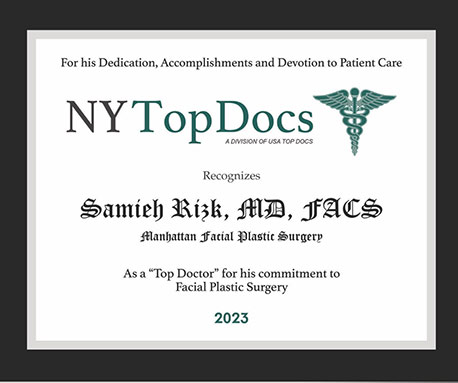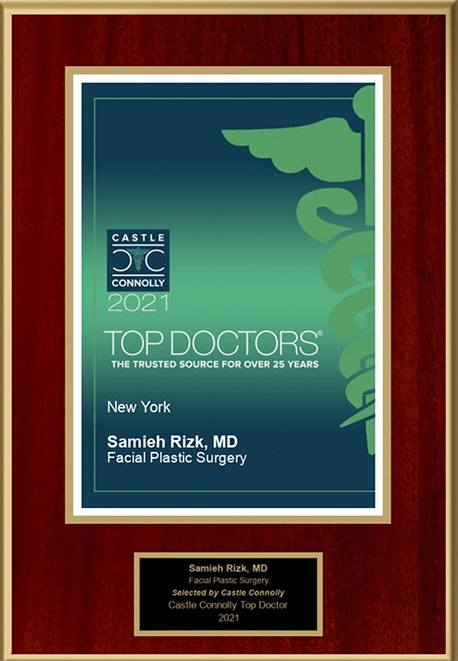Before Sinus Surgery
The sinuses are a linked network of hollow cavities that reside in the front portion of the skull. There are four sinus cavities: the maxillary sinuses (located in the cheekbones), the frontal sinuses (in the middle-lower portion of the forehead), the ethmoid sinuses (at the nasal bridge, between the eyes) and the sphenoid sinuses (within bones located behind the nasal cavity).
The sinuses contain a lining of soft, pink tissue called mucosa. Their role is unknown, but many experts believe that they exist to humidify air that is breathed in, and/or to enhance the voice.
Issues that Affect the Sinuses
Any number of factors may cause the sinuses to become inflamed and swollen, including allergies, nasal polyps, a deviated septum, facial trauma, respiratory tract infections, and other issues. When this swelling lasts more than a couple of months it is called chronic sinusitis (prior to this it is known as acute sinusitis). This condition inhibits drainage and leads to a buildup of mucus and can make it difficult to breathe through the nose. It can also cause swelling in the area around the eyes and other areas of the face, as well as throbbing pain or a headache.
Causes of sinusitis include infection, growths within the sinuses called nasal polyps and a deviated septum.

Symptoms of Sinus Disorders/Illnesses
Acute sinusitis and chronic sinusitis have similar symptoms. However unlike acute sinusitis, which is not serious and is only temporary, chronic sinusitis persists and can lead to serious health problems. If more than two or more of the following signs and symptoms are present, you may have chronic sinusitis:
- Drainage of a thick green or yellow discharge down the throat or from the nose
- Congestion
- Obstruction of the nasal passages
- Difficulty breathing through the nose
- Tenderness, swelling and pain around the cheeks, eyes, nose or forehead
- Compromised sense of smell and taste
Other symptoms may include the following:
- Ear pain
- Aching in the teeth and upper jaw
- Coughing
- Sore throat
- Bad breath (halitosis)
- Fatigue
- Irritability
- Nausea
To determine what is causing your sinus problems, your doctor will conduct an examination, possibly giving you a number of tests. In addition to examining your sinuses, the doctor will also look at your ears, eyes and throat. He or she will ask you about your symptoms, medical history, allergies, medications your taking, if you smoke and other questions that will help determine the appropriate course of treatment. (You should prepare a list of questions to ask as well.)
How to Treat Sinus Symptoms
There are many therapies your doctor may recommend to treat your sinus symptoms. The objectives of treatment are to reduce inflammation, improve drainage, eliminate the cause of the symptoms and eliminate flare-ups.
Common treatments include the following:
Saline nasal irrigation, a nasal spray into that rinses out the nasal passages.
Nasal corticosteroids, another type of spray that helps prevent and treat inflammation.
Oral or injected corticosteroids to reduce inflammation caused by severe sinusitis, particularly in patients with nasal polyps.
Decongestants. These medications, which are typically available over the counter but can also be prescribed by a doctor, come in liquid, tablet and spray form. They are usually taken for a few days at most.
Over-the-counter pain relievers, including aspirin, acetaminophen (e.g., Tylenol) or ibuprofen (e.g., Advil, Motrin IB). (Note: Never give aspirin to someone under the age of 18.
Aspirin desensitization therapy, for patients who experience reactions to aspirin that lead to sinusitis. (Note that this treatment is typically available only in special clinics and medical centers.)
Antibiotics may be necessary in cases where the patient has a bacterial infection. However, in many cases chronic sinusitis is caused by something other than bacteria; in these cases antibiotics are not always helpful.
Allergy shots (immunotherapy) are sometimes necessary for patients whose sinusitis is caused by allergies. Immunotherapy helps mitigate the body’s response to allergens.
Surgery. When sinusitis persists despite measures taken to treat it, endoscopic sinus surgery may be the best course of action. During this procedure, the surgeo uses an endoscope (a thin, flexible tube with a light) to view the sinus passages. Depending on the source of the obstruction, the surgeon may use various instruments to excise tissue or polyps that are causing the nasal blockage. Another option is to widen a narrow sinus opening in order to help with drainage.








